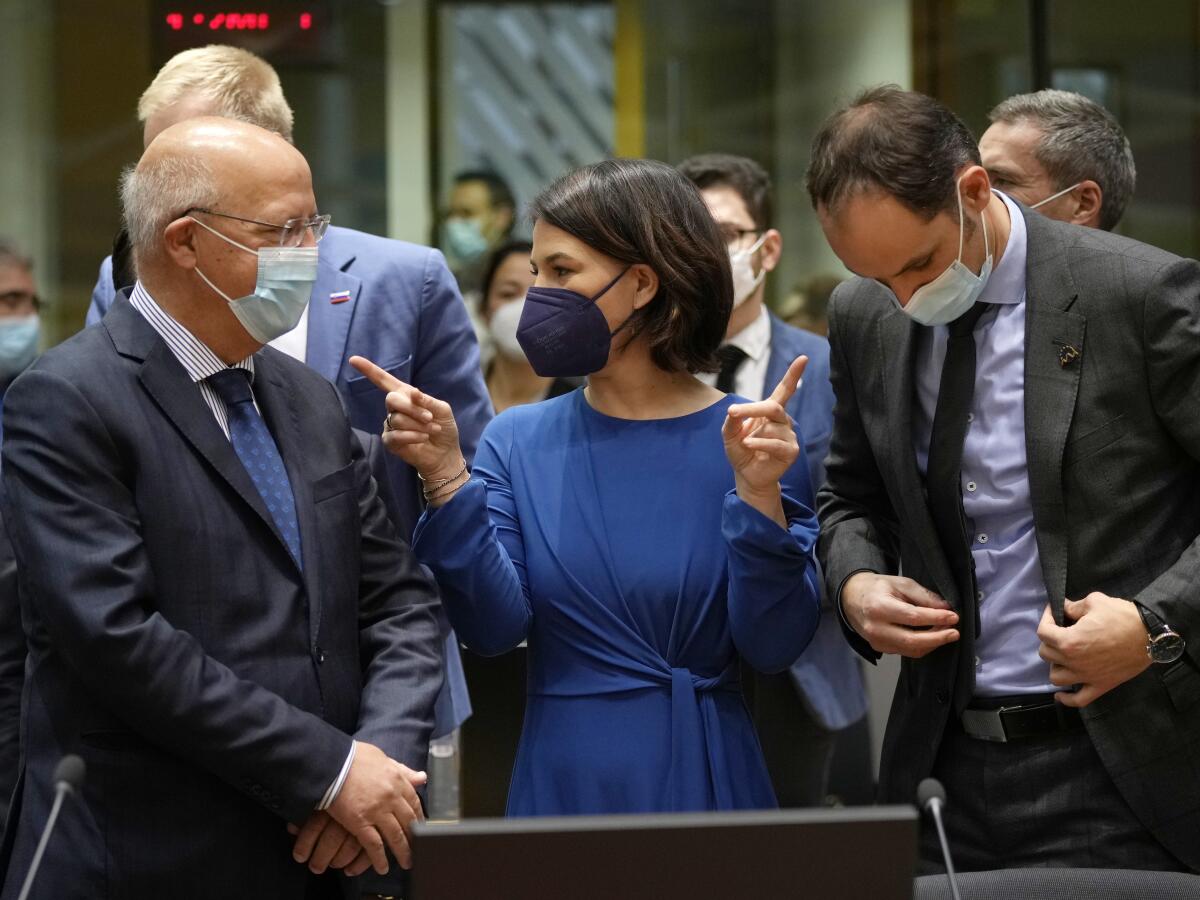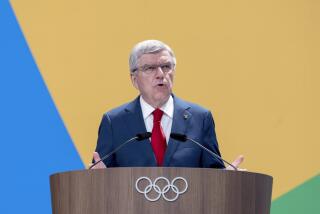EU shows little appetite to join U.S. in Olympics diplomatic boycott

- Share via
BRUSSELS — Several European Union nations have made it clear they have little appetite to join the U.S. initiative for a diplomatic boycott of the Beijing Winter Games because of concerns over China’s human rights record.
EU foreign ministers were seeking a united front on how to handle the issue, following France’s position last week that a no-show of leaders and dignitaries at the opening of the Olympics would have little real impact.
“Politicizing sporting events like the Winter Olympics does not seem useful to me,” said Austrian Foreign Minister Alexander Schallenberg.
New German Foreign Minister Annalena Baerbock told German broadcaster ZDF that as little as possible should be taken away from the participants themselves. “Athletes prepare for years, sometimes half their lives, for this, and that’s why it should not be used for political issues,” she said.
China has dismissed the decisions by Australia, Canada and Britain to join Washington’s diplomatic boycott as a “farce” and is not expecting many other nations to join the initiative.
Even though the 27 EU nations will field individual teams at the Games, the countries’ foreign ministers want to harmonize their approach to the largely symbolic diplomatic dance preceding the Olympics and at the Feb. 4 opening ceremony.
China is accusing the U.S. of violating the Olympic spirit by announcing an American diplomatic boycott of February’s Beijing Winter Games.
A joint no-show by the 27 nations would add weight to President Biden’s initiative, but the EU nations appear hesitant.
China has vowed to respond to the U.S. with “firm countermeasures” over the boycott, but has given no details on how it plans to retaliate.
Rights groups have called for a total boycott of the Beijing Winter Games, citing Chinese human rights abuses against its Uyghur minority in the northwest Xinjiang region, which some have called genocide. They also point to Beijing’s suppression of democratic protests and dissent in Hong Kong.
Schallenberg said it was doubtful that a diplomatic boycott would benefit the average Chinese much. “Let’s keep things in proportion,” he said.
U.S. athletes will win seven golds and 24 medals overall, for fourth place in the medal count, at the Beijing Olympics, according to a Gracenote forecast.
Baerbock insisted that China would still remain an important partner to solve global challenges like the climate crisis.
Luxembourg Foreign Minister Jean Asselborn said the problem was in part that EU nations had failed to launch a successful bid for the Winter Games.
Stockholm and Krakow, Poland, were two EU cities that withdrew bids, while Munich rejected it in a voter referendum. “So we also have to realize that it is indirectly our fault” that the Games went to Beijing instead, Asselborn said.
He also backed the position of French President Emmanuel Macron, who said last Friday that “the pain such a boycott could inflict was questionable.”
More to Read
Sign up for Essential California
The most important California stories and recommendations in your inbox every morning.
You may occasionally receive promotional content from the Los Angeles Times.












